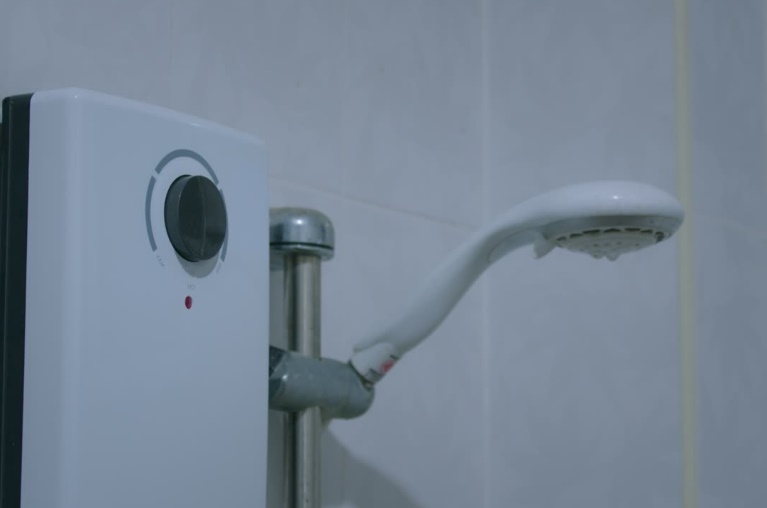Water heaters play a pivotal role in our daily routines, ensuring we have warm showers and clean dishes. As we march towards a future where energy efficiency is not just a buzzword but a necessity, the debate between traditional and tankless water heaters has heated up.
So, let’s embark on a journey to explore and compare these two types of water heaters, focusing on their energy efficiency.
Fun Fact: Did you know that for homes using 41 gallons or less of hot water daily, demand water heaters can be 24%–34% more energy efficient than their traditional counterparts?
Traditional Water Heaters
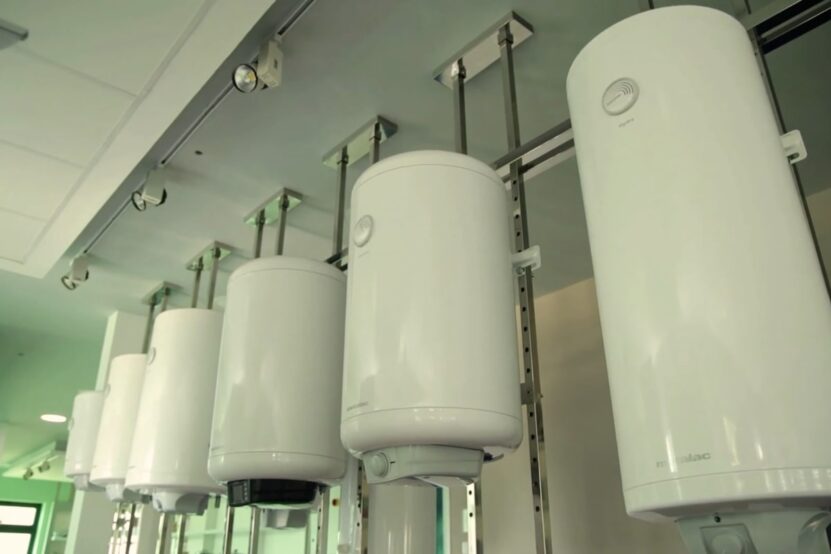
Traditional heaters, often referred to as storage or tank-style, operate by storing and heating a large volume in a tank. When you turn on your tap, water from this tank is dispensed, and the tank then refills and reheats. There are primarily two types of traditional heaters: electric and gas.
Electric heaters use electrical resistance coils to heat the water, while gas heaters use a burner and a flue. The energy consumption of these heaters largely depends on the volume of the tank, the type of insulation used, and the frequency of use.
One of the main energy inefficiencies with traditional heaters is the standby energy loss. This means that the heater is constantly working to keep the stored water hot, even when you’re not using it, leading to potential energy wastage.
Pro Tip: Insulating your traditional heater tank can reduce standby heat losses by 25%–45% and save you about 7%–16% in water heating costs.
Tankless Water Heaters
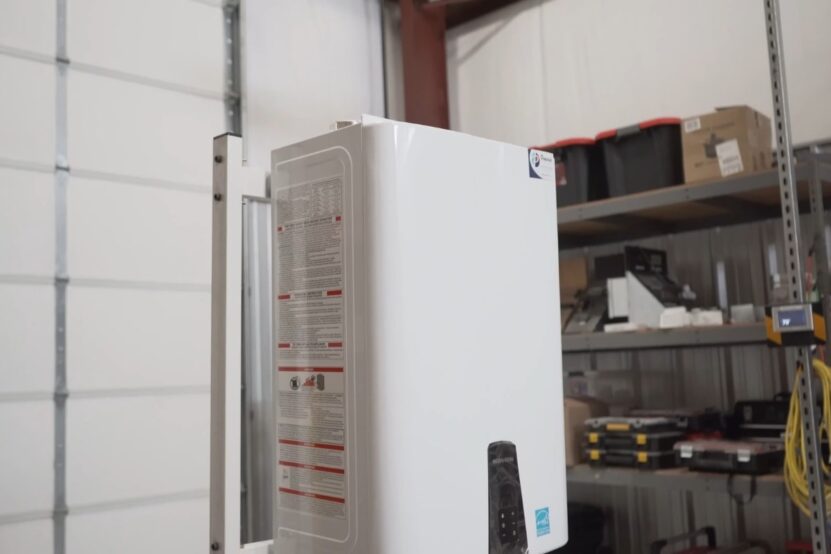
Enter the tankless heaters, also known as demand-type or instantaneous heaters. These devices heat on-the-fly, meaning they only heat when there’s a demand for it. So, when you turn on your shower or sink, cold water flows through a heat exchanger in the unit, getting heated by either a natural gas burner or an electric element.
There are, of course, different types of tankless heaters, primarily electric and gas-fired. Gas-fired ones generally offer higher flow rates than electric models. However, it’s essential to note that even the most robust gas-fired tankless heater might struggle if multiple outlets demand hot water simultaneously.
For instance, if you’re in the shower and someone else starts the dishwasher, you might just experience a cold surprise! One solution is to install multiple tankless heaters or dedicated heaters for high-demand appliances.
One of the significant advantages of tankless heaters is their energy-saving mechanism. Since they only heat when needed, there’s no standby energy loss. This can translate to substantial energy savings, especially in homes that don’t use massive amounts of hot water daily.
Energy Efficiency Comparison
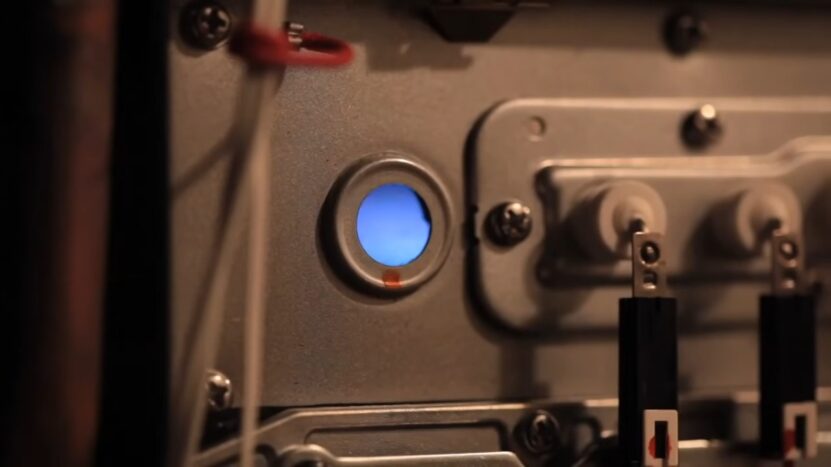
When it comes to energy efficiency, the battle between tankless and traditional heaters is quite intriguing. Traditional heaters, with their standby heat losses, can sometimes be energy guzzlers. They’re constantly working to keep the stored water hot, leading to potential energy wastage. On the other hand, tankless heaters shine with their on-demand heating mechanism. They only heat when there’s a demand, eliminating the standby energy loss.
For homes that use up to 41 gallons of hot water daily, tankless heaters can be 24%–34% more energy-efficient than their traditional counterparts. And for those households that consume a lot of hot water (around 86 gallons per day), tankless heaters still manage to be 8%–14% more energy efficient. Quite impressive, right?
However, it’s not all sunshine and rainbows for tankless heaters. Gas-fired tankless heaters, despite having higher flow rates than electric ones, can sometimes waste energy if they have a constantly burning pilot light. This can offset the energy savings from eliminating standby losses. But, many modern models come with intermittent ignition devices (IID) that resemble the spark ignition in some natural gas appliances, making them more efficient.
Fun Fact: The US Department of Energy estimates that tankless heaters can be 8 to 34% more efficient than storage water heaters.
Pros and Cons
Traditional Heaters
Advantages
- Familiarity: Most homes have them, and people are accustomed to their operation.
- Consistent Hot Water: As long as the tank has hot water, you’ll get it consistently.
- Lower Initial Cost: Generally cheaper to purchase and install.
Disadvantages:
- Standby Heat Loss: Constantly reheating water leads to energy wastage.
- Bulky: They take up more space.
- Shorter Lifespan: Typically last 10–15 years.
Tankless Heaters
Advantages:
- Energy Efficiency: Only heats water on demand, reducing energy consumption.
- Compact: Takes up less space than traditional heaters.
- Longer Lifespan: Can last more than 20 years with proper maintenance.
Disadvantages:
- Higher Initial Cost: More expensive to purchase and install.
- Limited Flow Rate: Might struggle with multiple simultaneous demands.
Environmental Impact

Our planet is undergoing rapid changes, and every appliance we use has an environmental footprint. Traditional heaters, with their constant reheating mechanism, can lead to more energy consumption and, consequently, a higher carbon footprint, especially if they run on non-renewable energy sources.
Tankless heaters, with their on-demand heating, tend to have a smaller carbon footprint. They’re efficient, reduce energy wastage, and when powered by green energy sources, they can be a boon for the environment. Plus, with a longer lifespan, they reduce the waste associated with frequent replacements.
Pro Tip: If you’re environmentally conscious, consider pairing your tankless heater with solar panels for an even greener approach!
Cost Considerations
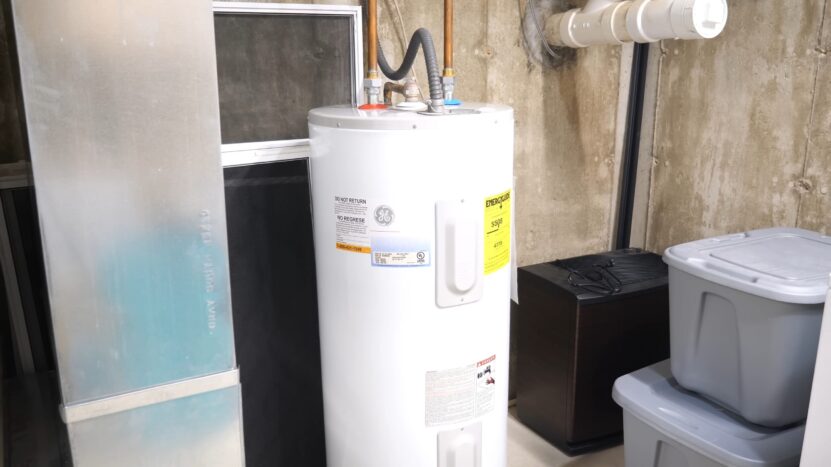
When it’s time to replace or install a water heater, the cost is often a significant concern. On average, households spend between $400-$600 annually on heating water. This makes water heating the second-largest expense in most homes, accounting for 14-18% of utility bills.
Traditional Heaters
- Initial Costs: Traditional heaters typically have a lower upfront cost, with prices ranging from $300-$480.
- Operational Costs: While they might be cheaper initially, their operational costs can be higher due to standby heat losses.
Tankless Heaters
- Initial Costs: Tankless heaters come with a steeper price tag. Gas-fired tankless heaters can range from $800-$1,150. Additionally, installation costs can be higher due to the need for electrical outlets, upgraded gas pipes, and a new ventilation system.
- Operational Costs: Despite the higher initial cost, tankless heaters can lead to savings in the long run. They don’t have the standby heat losses associated with traditional heaters. In fact, a typical family can save at least $100 annually using an ENERGY STAR-certified tankless heater.
Pro Tip: While considering costs, also factor in potential energy savings. Over time, the reduced operational costs of tankless heaters can offset their higher purchase price.
Maintenance and Lifespan
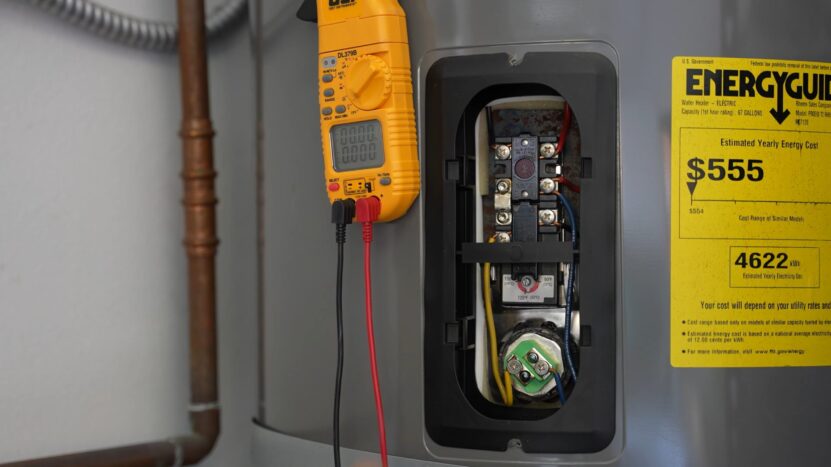
Maintenance and lifespan are crucial factors to consider when choosing between traditional and tankless heaters.
Traditional Heaters
- Maintenance: Regular check-ups, cleaning sediment build-up, and checking for rust or leaks are essential for traditional heaters.
- Lifespan: They typically last between 10-15 years.
Tankless Heaters
- Maintenance: Tankless heaters require less frequent maintenance. However, it’s essential to check for scale build-up, especially in areas with hard water.
- Lifespan: With proper care, tankless heaters can last 20 years or more. Their design also allows for easy replacement of parts, potentially extending their life even further.
Fun Fact: Did you know that the average heater will likely be replaced more than once during a homeowner’s time in a home?
FAQ
What are the environmental benefits of using an ENERGY STAR-certified tankless heater?
ENERGY STAR-certified tankless heaters are designed to meet strict efficiency guidelines set by the U.S. Environmental Protection Agency. By using one, you’re not only saving on your energy bills but also reducing greenhouse gas emissions. These heaters have been tested to ensure they consume less energy, reducing the carbon footprint associated with water heating.
Are there any rebates or incentives available for installing energy-efficient water heaters?
Yes, many local utility companies and governments offer rebates or tax incentives for homeowners who install energy-efficient appliances, including tankless heaters. It’s advisable to check with your local utility company or the Database of State Incentives for Renewables & Efficiency (DSIRE) to see what incentives might be available in your area.
How do I determine the right size for a tankless water heater for my home?
The right size depends on the maximum expected hot water demand in your home. You should calculate the combined flow rate of all devices you expect to use simultaneously (like showers, washing machines, etc.). Also, consider the groundwater temperature in your area, as colder water requires more energy to heat. A professional can help assess your home’s needs and recommend the appropriate size.
Can I install a tankless water heater myself, or do I need a professional?
While some homeowners with technical expertise might feel comfortable installing a tankless heater, it’s generally recommended to hire a professional. Proper installation is crucial for the efficiency and safety of the unit. A professional can ensure the heater is installed correctly, adhering to local building codes, and can also guide you on optimal placement.
Conclusion
The debate between tankless and traditional heaters is multifaceted, with each having its own set of advantages and disadvantages. While traditional heaters are familiar and have a lower initial cost, tankless heaters shine in terms of energy efficiency, lifespan, and long-term savings.
Your choice should be based on your household’s specific needs, budget, and long-term plans. Whether you opt for the familiarity of traditional heaters or the efficiency of tankless ones, always prioritize regular maintenance to ensure optimal performance and longevity.
Remember, it’s not just about immediate costs but also about the long-term benefits and savings. Make an informed decision, and may your showers always be warm!
